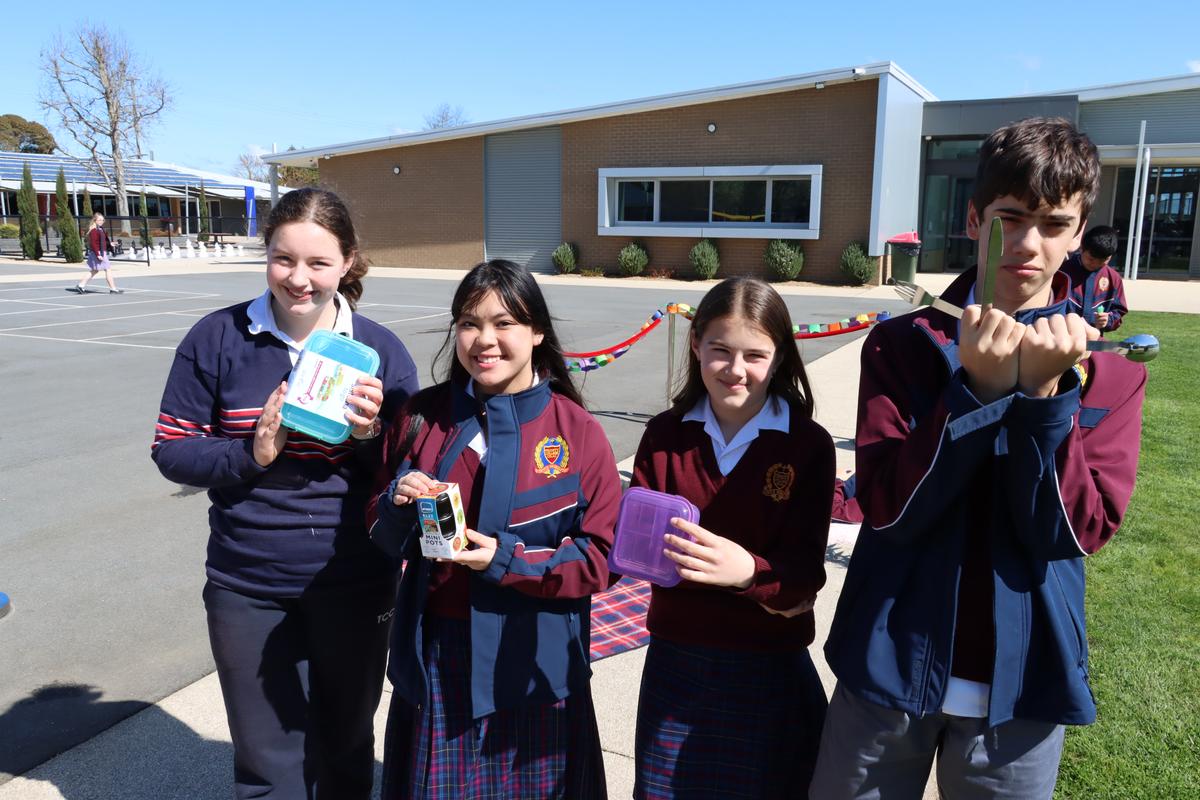Sustainability at Trinity

Our Nude Food Day for Term 3 featured beautiful weather; sunshine and a welcomed spring feel.
Those who brought along food items without single-use packaging were invited to spend time in a specially set up area of picnic blankets and cushions. Our raffle was drawn with seven Year 7 students winning prizes of re-usable lunchbox containers and utensils. Thank you to all students and staff who are making conscious efforts to consider their food items according to the impact that food packaging can have on our environment.
I look forward to seeing what our next Nude Food Day will bring next term, as we strive to promote waste-free lunches as a crucial way of reducing litter at school and encouraging healthy eating.
Some statistics that students were encouraged to think about on the day:
1. According to statistics from FoodWise, Australians discard up to 20% of the food they purchase. That's four million tonnes, or roughly 140kg per person of food going to landfill each year. https://www.australianethical.com.au/blog/food-waste-a-growing-australian-problem/
2. Sustainable food shopping includes the packaging your food comes in. Australians throw away around 1.9 million tonnes of packaging each year - enough to fill the Melbourne Cricket Ground nine times over. Packaging takes a lot of energy, water and other natural resources to produce, and packaging waste pollutes our air, water and soil. Let's reduce, reuse and recycle packaging as much as possible. Reduce packaging | Sustainability Victoria
3. Single-use plastics (SUPs) make up one third of the litter we see on Victoria's streets and in our parks and waterways, where they cause harm to wildlife and our health. By switching to reusable bags and remembering to take them with you when you shop, you can help the environment and reduce the number of unnecessary plastics that end up in landfill or as litter. https://www.sustainability.vic.gov.au/recycling-and-reducing-waste/at-home/avoid-waste/minimise-single-use-items/bags
4. Plastic pollution is a growing epidemic that shows no signs of stopping. In the last ten years, we produced more plastic than in the previous 50. The problem with plastic is that it never biodegrades; instead, it breaks into smaller and smaller pieces, which usually find their way into our water streams and the stomachs of our marine life. This means that every piece of plastic ever made is still in existence today.
Remember that every positive action makes a difference, no matter how small.
Sarah Glennen

